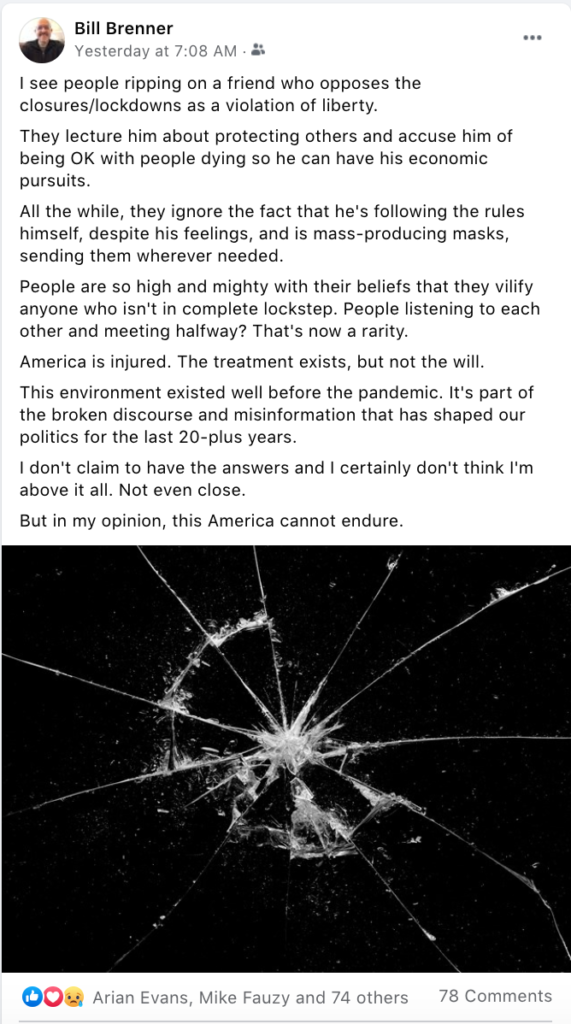
Most days, scanning Facebook reminds me of a picture I found online a few years ago — a mushroom cloud giving the finger.
Sure, there’s plenty of love and amusement to see on the Book of Face. But when it comes to political discourse, particularly in the U.S., people go nuclear with their beliefs.
They verbally vaporize anyone in their path who thinks differently. They drop labels like “fascist” and “liberal.” When challenged on their positions, they respond with “fuck you” while questioning the intellect of whoever’s comment rubbed them wrong.
Conservatives do it. Liberals do it. Centrists do it. And everyone gets shanked from it.
Mood Music:
When you see that shit often enough, it’s easy to miss the better parts of humanity on social media. You see so much hate, rage and self-righteousness that it poisons you.
The other day, several of those middle-finger mushroom clouds came from good people who believe the current strategy of social distancing and economic lock-down is the only sensible approach. The target of their outrage?
A guy worried that those measures are a threat to personal liberty and economic stability.
Irritated, I went on Facebook and scrawled this:

Some of those 78 comments were the predictable rehash of fixed opinions.
Another exchange — between the guy I was writing about and a nurse whose kids went to elementary school with mine — gave me something to be grateful for:
A reminder that in the Facebook viper pit, kindness, reason and understanding do exist if you pay attention.
I know these individuals fairly well and there are political positions they would not agree on. But in this exchange, that didn’t matter.
They connected over things that go beyond economic, political and spiritual ideology: the shared experience of losing loved ones and doing a job in dangerous conditions.
While they traded kind words, others in the thread discussed the challenges at hand and truly seemed to be seeking common ground.
Maybe — just maybe — we can get past petty differences and tackle the bigger problems.

